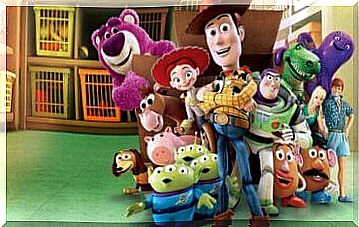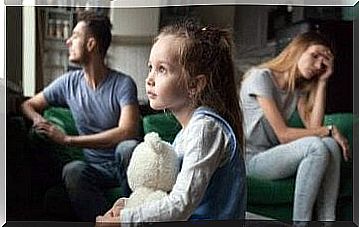7 Ways To Build Frustration Tolerance – Parenthood

The inability to endure unpleasant feelings or stressful situations is not easy to forge. The absence of tolerance for frustration is characterized by the fact that people seek to resolve their conflicts immediately.
In other words, they try to easily and quickly resolve any situation that overwhelms them. If this does not happen, a deep sense of unease and disturbance invades them.
When you don’t have a tolerance for frustration, you avoid situations that lead to confrontation. This then duplicates stress and anxiety. To avoid this, therefore, it is important to exercise this skill in children.
How to build frustration tolerance in your children?
Children’s immune systems develop better when exposed to pollutants. Thus, they create a certain resistance. Therefore, children who grow up in sterile environments are more likely to develop allergies and other illnesses.
Well, something similar happens with the frustration tolerance. That is to say that the child becomes stronger when he is exposed to it. This is the first tip for parents.
1. Exposure to frustration contributes to emotional development
Of course, it is normal that you protect your children from any unpleasant feelings. However, when you keep them away from these negative emotions, you are also not allowing them to develop other abilities.
Persistence, determination and the ability to resolve conflicts are acquired precisely when conflicts are confronted.
A child who puts frustration tolerance into practice will be a happier adult. In addition, it will surely be more successful. Indeed, he will understand that life experiences are not always pleasant. And thus, he will be able to survive without trauma.
2. Observe before you go to the rescue
Be patient. Above all, don’t try to solve your children’s problems right away. Rather, be confident in his ability to surpass himself and find a way out on his own. Children don’t need you to give them all the solutions. Rather, you are there to help them discover them.

3. Help them express their emotions
First, teach them that it’s always good to cry when you’re sad. Likewise, we have the right to laugh when we are happy happy. Expressing what they are feeling is the first step in feeling better. All the emotions the child experiences are valid. Indeed, they help him to form his character.
4. Set clear boundaries
Sometimes kids need you to answer with a definite “no”. It’s probably not what they want, but it’s what they need.
You are therefore completely free to say “no” when they ask for a very expensive toy. The same is true if they want to watch a late night TV show. Thus, a discipline is established and they are shown that they will not always have what they want.
5. Give them strategies to control their reactions.
Show her that breathing deeply, walking for a bit, or listening to pleasant music are actions that will help her calm down. Relaxation is essential in moving from feeling frustrated to finding a way out.
It’s also important that they know that if they can’t find that way out, it’s okay to ask for help.
6. Be an example
Surely you have heard this many times, but children learn more from your example than from your words. If you act calmly when something goes wrong, the child will internalize and apply that behavior .
Make sure the child develops in an environment of tolerant people who can communicate.

7. Let them know the results of their decisions
In daily coexistence, children have to make choices. About what they will eat, what clothes they will wear, what toys they prefer and what activities they will do.
Point out to them that every time they make a decision, things are happening around them. And they have to accept them, even when they are not pleasant. This will help them, in the future, to think better about what they really want and what is right for them.
The training you give your children in their early years will also influence how they view their lives in the future. Values, assertiveness and resilience are the keys to making your children better people and growing up happy.
No life is completely free from conflict or adversity. You are responsible for developing their tolerance for frustration. This will help them avoid suffering and stress in adulthood.









